By Danielle Filjon
“I knew that I had to do something because if nobody did anything, St. Augustine would be lost,” said Zach McKenna of St. Augustine Eco Tours.
Mckenna, a Flagler College alumni, is a boat captain, tour guide, kayak guide, researcher, and a part-time marine rescuer all in one.
“When I graduated Flagler, thinking I’d never come back to St. Augustine, it occurred to me that no one was doing anything here,” McKenna said. “Knowing that the set of rivers and estuaries didn’t have an ambassador, we thought that we can do that.”
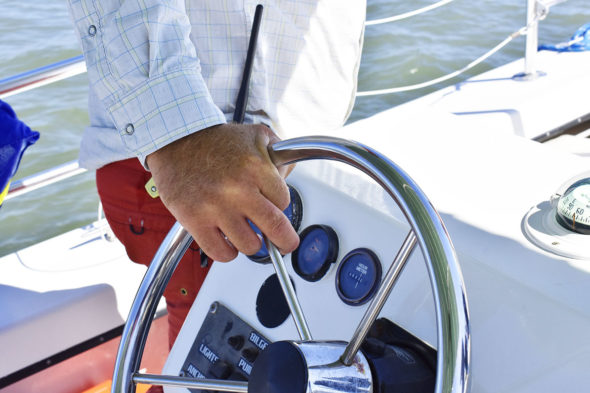
This is why St. Augustine Eco Tours was founded and has been operating for over 15 years.
The staff at Eco Tours have had “hundreds of hours and tons of training and lots of experience…and permits to do what we do here,” Mckenna said.
This allowed them to have expertise in telling the story of the St. Augustine ecosystem while urging on the importance of conservation.
St. Augustine Eco Tours not only educates tourists and the local community about marine life and the beauty of St. Augustine’s natural history, but a percentage of the profits made off of tours go directly toward conservation, research, and rescue.
On both the kayak and boat adventures with Eco Tours, guests see firsthand St. Augustine’s wild ecosystem. Dolphins, sea turtles, herons, and the occasional manatee are visitors on the tour.
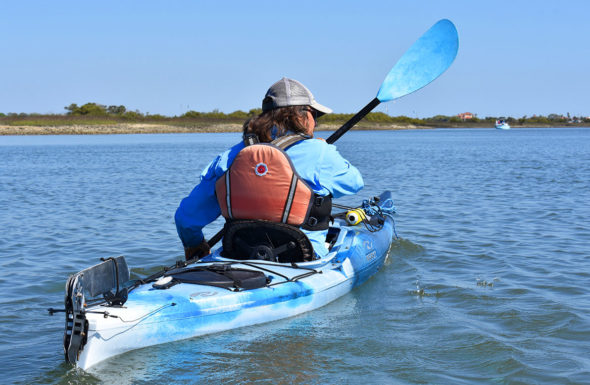
McKenna’s knowledge about the local species allows guests to leave feeling far more educated and passionate about all forms of marine life.
Jodi, a patron of St. Augustine Eco Tours, said, “it was great to be so close to nature, and to be on the water too.”
The tour guides even carry nets to pick up any trash floating in the waters, but also cannonball jellies which they scoop up and show the guests before releasing back into the water.
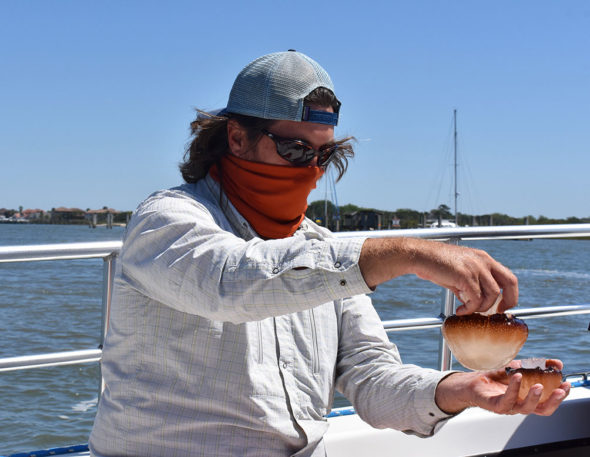
McKenna himself is an active researcher and marine rescue help, as well as a conservationist. His most recent research deals with Atlantic Bottlenose Dolphins and their movement patterns between regions in Northeast Florida.
This research initiative “fills in this hole of information about how many dolphins are here, what their fins look like,” McKenna said.
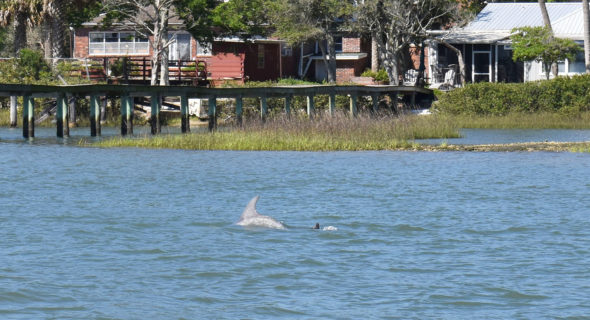
His team’s research is published and is linked below the article.
St. Augustine Eco Tours is also able to respond to the overwhelming needs of marine animal rescue in the water.
“In many cases where limited state wildlife resources are unavailable when there is an injured or entangled animal, we are able to use our vessels and experience to respond right away ,” McKenna said.
St. Augustine Eco Tours marine life permit holders have extensive training and experience to handle and rescue a variety of organisms, operating under the correct permits issued by the state to do so.
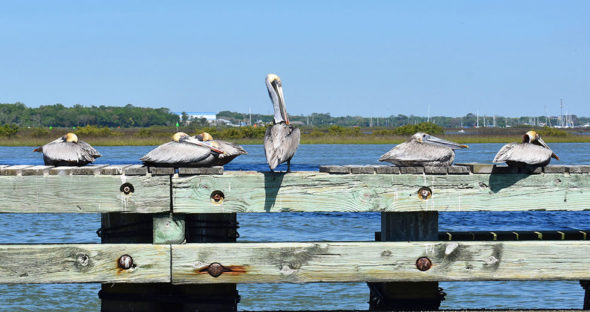
“Whether the customer knows it or not, they are paying for 500+ hours a year of community outreach with these project,” Mckenna said.
Dr. Ed McGinley, a professor of Natural Sciences at Flagler College, said, “Ecotourism, if done correctly can be a huge boon to an area.”
Not only does this type of tourism educate people about local ecosystems, but it instills a passionate appreciation for their preservation.
“Seeing a dolphin, or a manatee, or a sea turtle up close and in real life has a power that is hard to describe,” Dr. McGinley said.
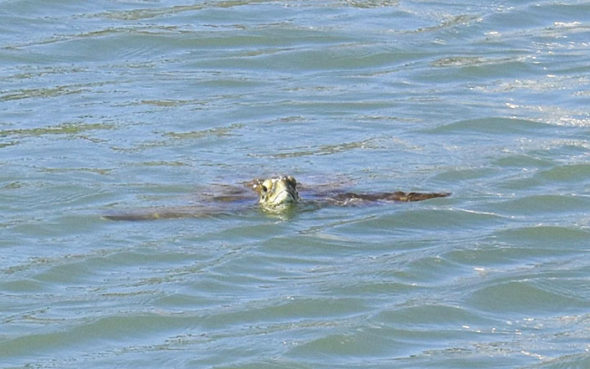
It is a “reminder that nature is not some faraway place like the Great Barrier Reef or the Serengeti in Africa. Nature is all around us, and by getting people to see that can help with conservation efforts”, Dr. McGinley said.
Every day people may not even realize how close they are to a wide array of wildlife, and this can “potentially have incredibly beneficial ramifications, namely getting funding for further conservation,” Dr. McGinley said.
However, one has to be careful about what sorts of “eco-tourism” they support, to ensure that it is “done right,” in Dr. McGinley’s words.
“We need to stop viewing nature as a repository of things we can take and use, and more as a system we need to conserve for our own health and well-being,” Dr. McGinley said.
There are many tours operating under the guise of being “eco-friendly” and “eco-conscious” that manipulate the wildlife for profit.
Some local “so-called ‘eco-tours’ have been engaging in various criminal activity, behavior that is too gross to even talk about,” McKenna said.
“When we found out that they were feeding dolphins, we immediately bought tickets and put our people on the boat to document it and sent it to law enforcement,” McKenna said. “And they were done that day.”
This action is so important to preserving wild dolphins’ instinctive hunting and feeding behaviors.
True ecotourism operators like St. Augustine Eco Tours ensure that guests have an interactive and immersive experience, while still prioritizing the safety of marine life observed on tours.
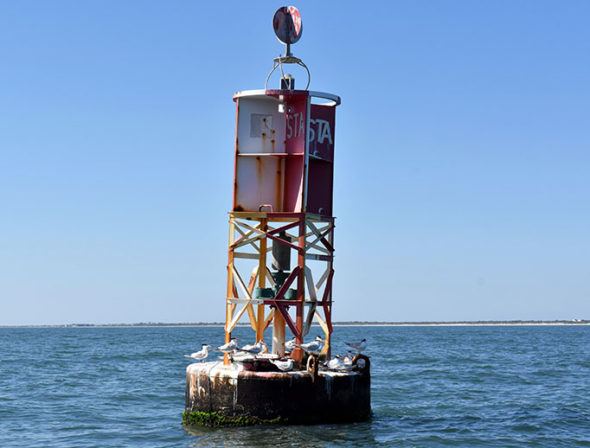
“We do not compromise on our values, we don’t guarantee dolphins, we limit our vessels for small groups…we have the scientific measures that are proven to benefit the local marine life that lives here,” McKenna said.
“What we are seeing is a gross overuse of the rivers,” Mckenna said. “[People] are not loving it to death, they’re just disrespecting it like it’s always been this way.”
McKenna has taken it upon himself to try and appeal with the city and county to enforce a “no wake zone” in areas abundant with marine life in shallow water.
This will dramatically improve the conditions of our local marine life and the ecosystems surrounding our city.
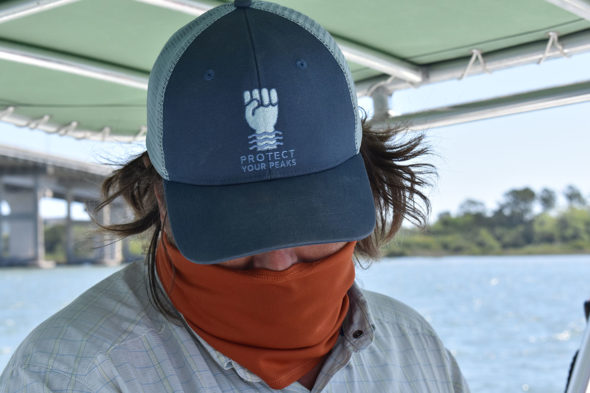
“It is incredible to see the same empathy and unselfishness, this love for the environment that I see in my children now, and the undergraduate students I work with at Flagler,” McKenna said.
To know a small community of people who care and put the needs of nature above their own exists as a result of his efforts, McKenna has hope for what conservation can look like through a new generation of eco-tourism done right and conservation of our waters.
Additional Links:
Link to St. Augustine Eco Tours: www.staugustineecotours.com
Link to Zach Mckenna’s research with dolphins: https://search.proquest.com/docview/2415481069/fulltextPDF/B2F109FE71C1471EPQ/1?accountid=10900

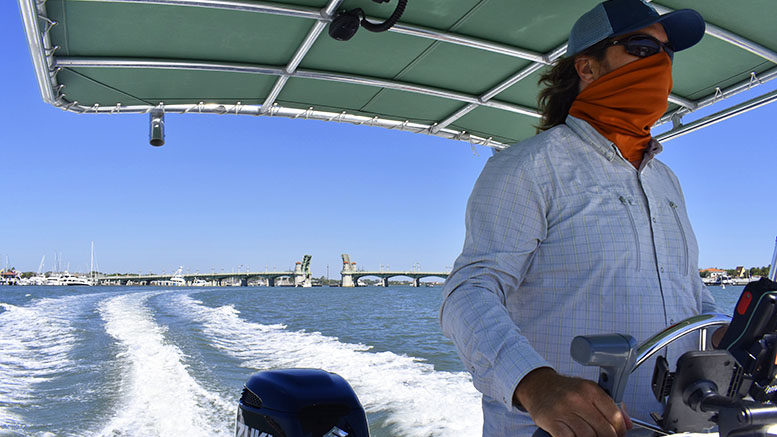

Be the first to comment on "Eco Tourism’s Impact on the Oldest City"